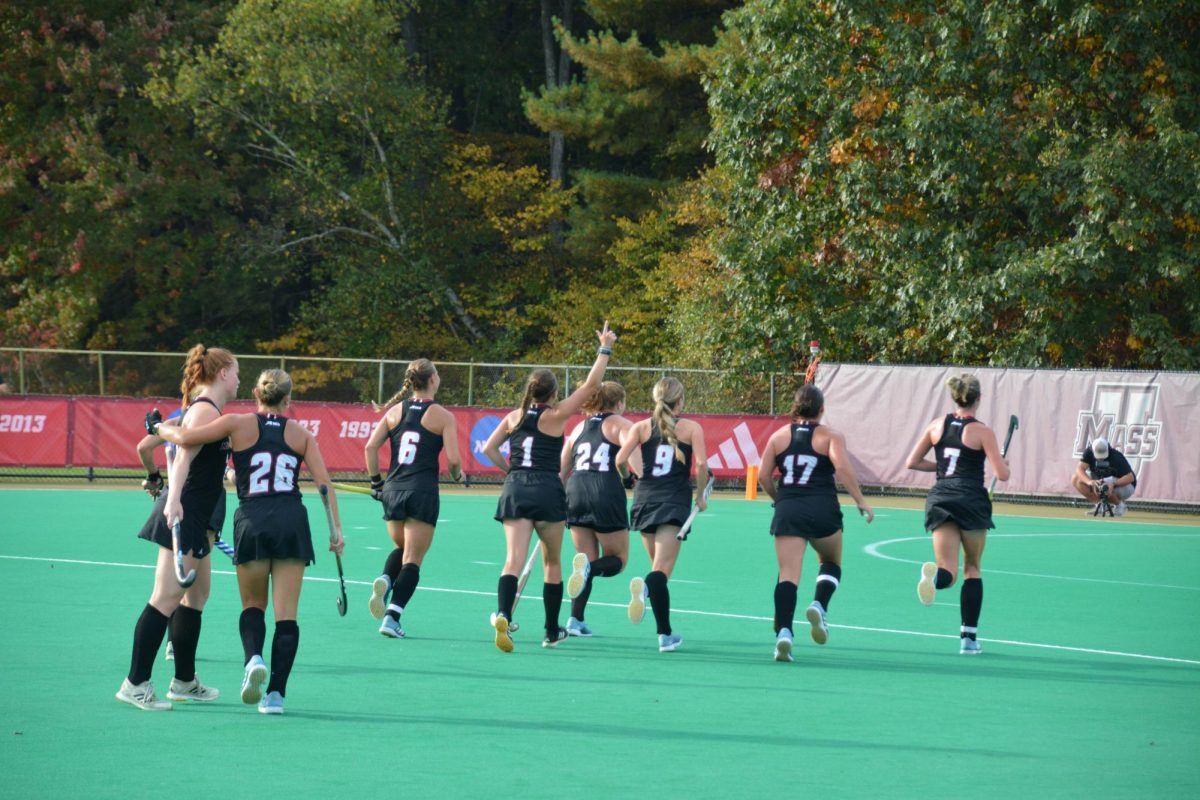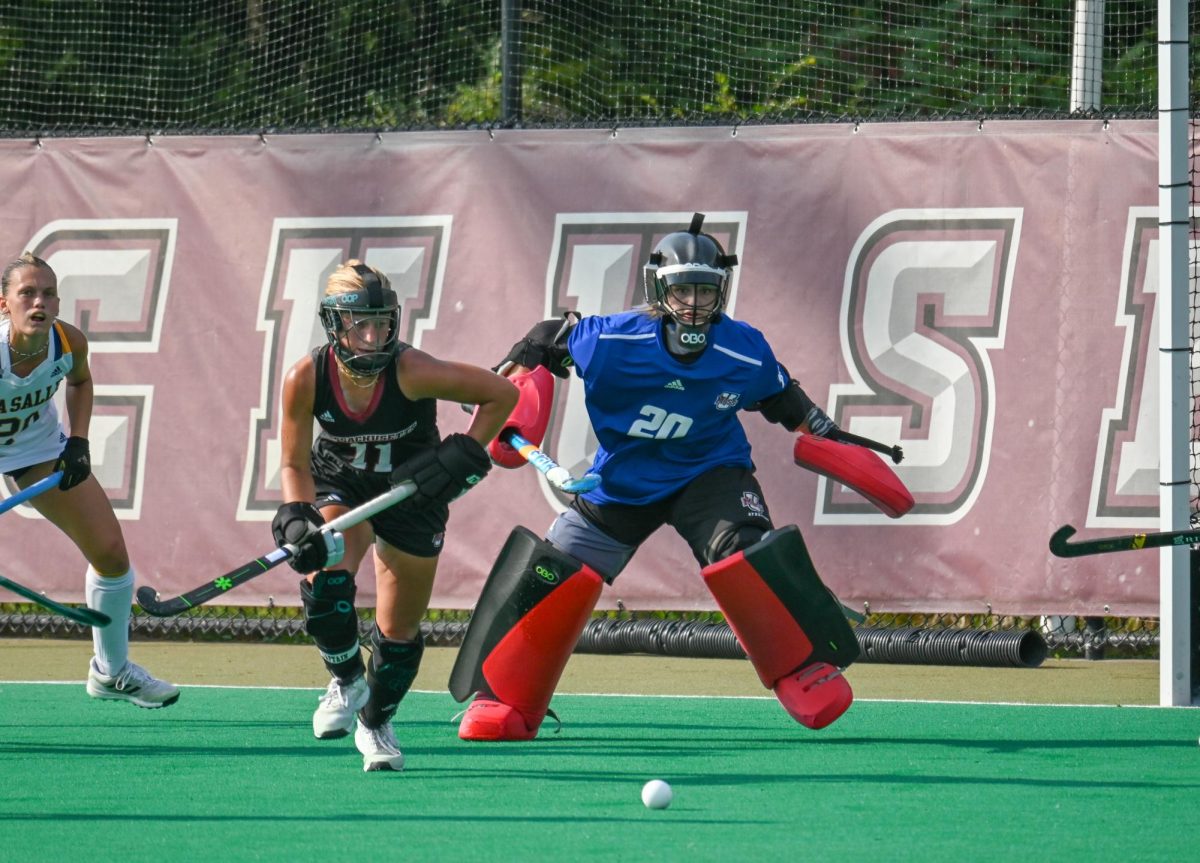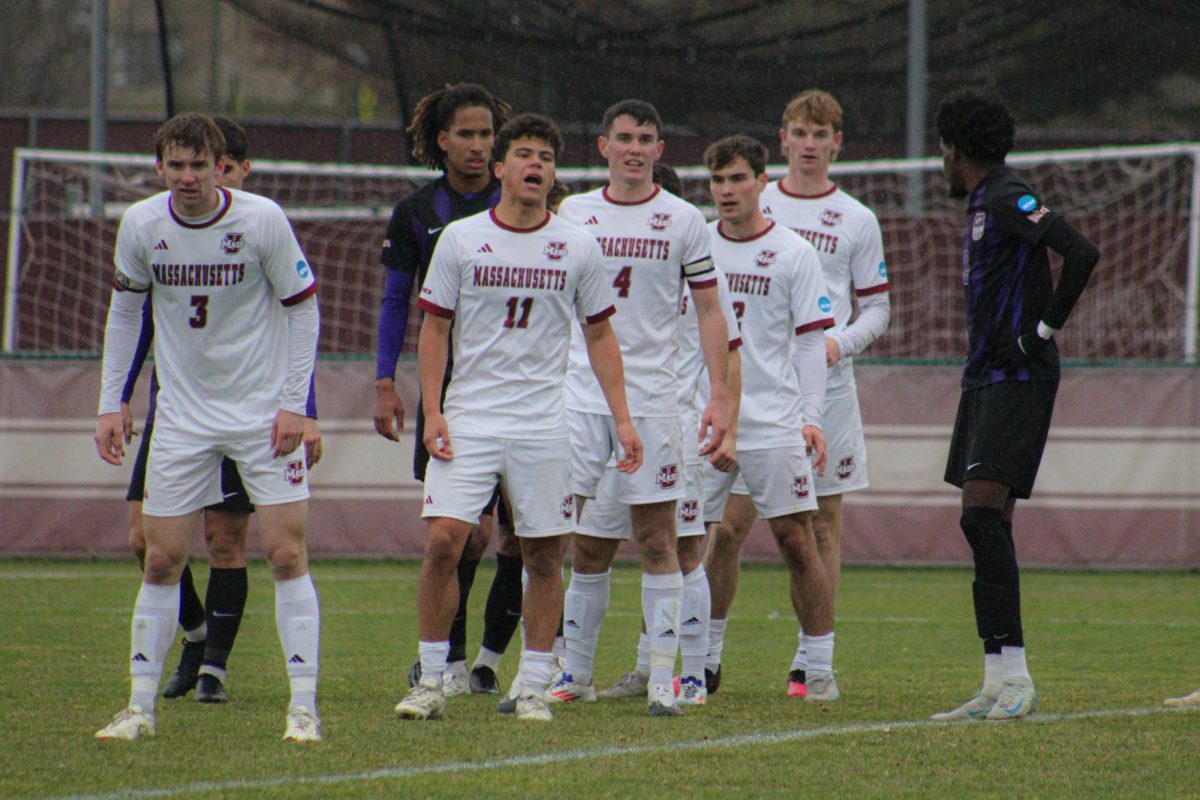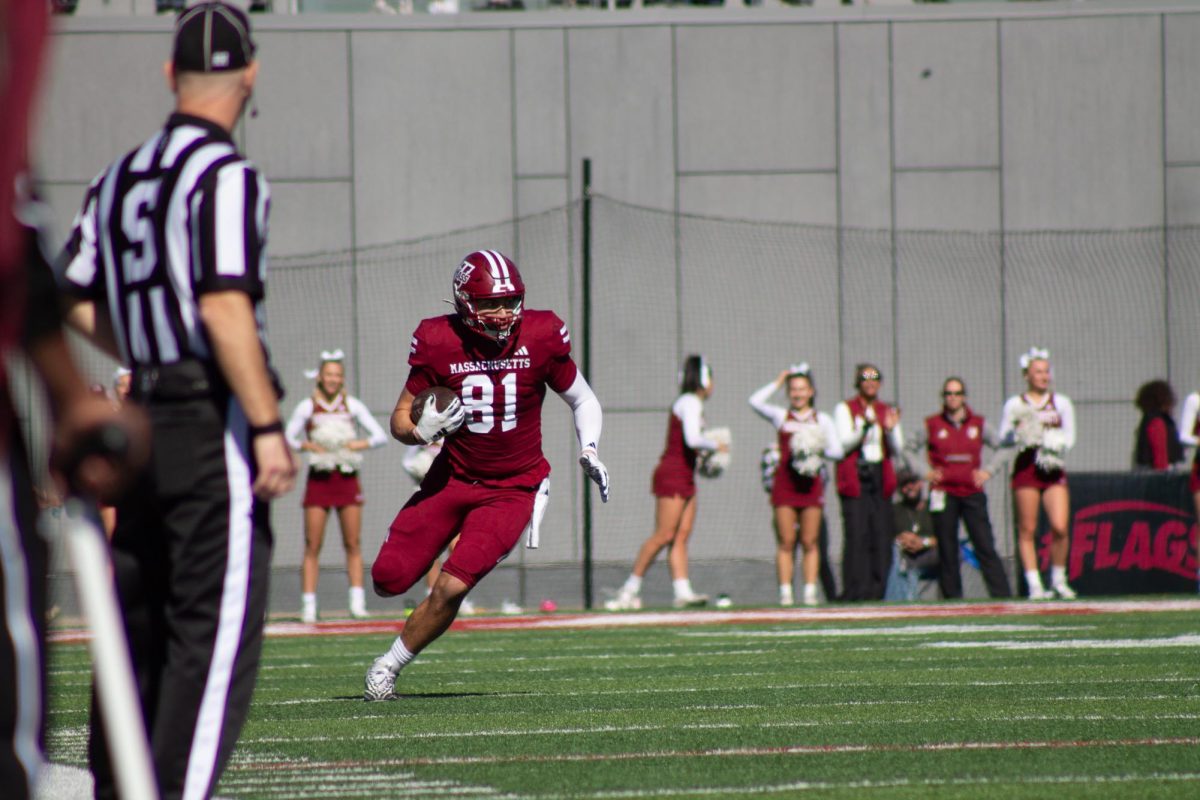
Available to read in Chinese and Korean.
Professor and scholar-artist Dominique C. Hill spoke and answered questions about feminism and racism as a part of the ongoing series “The F Word: No Apologies” at Amherst College on Tuesday night.
“It took me a long time to come to associate with being a feminist, but not with the word feminism,” Hill said. “As I trace back what it means to be feminist, I trace it back to my family, seeing them doing things but not wanting to associate with feminist because of who’s left out.”
Moving on to talk about her time as a student, she said “the more I progressed through educational advancements, the more I started to become aware of how crazy the system was.” She described her experiences first at a predominantly white Catholic high school, and then at Colgate University.
Hill spoke about her feelings of having to advocate for herself in her encounters with racism on a college campus during her first semester. She described her god-brother being followed home by a pickup truck yelling racial slurs and threats at him, as well as her own experience with people calling her the “n-word” at a party.
In one instance, she said a professor refused to come to a talk show about race, but “did decide to write an email, offering a sort of hierarchical tier of black folk, listing African Americans as the dumb of the dumb, and suggesting that the only reason why we managed to graduate was because we took courses and majored in things that were full of feelings.”
When asked by an audience member about how she avoids getting overwhelmed or hopeless, Hill responded that, “there is always opportunity in the darkness.”
“This moment doesn’t have to kill me, I get to choose what happens to me,” Hill continued, “also because of people like y’all. What would it mean if I give up? What would be the reason for you to stay?”
Hill also stated “one of the most unfortunate things that’s happening in education is you don’t get the chance to dream and imagine.”
“You all came to school with this plan, you don’t have time to breathe and embrace what you’re doing right now,” Hill said. “Embrace it because it feels good right now and because it’s something that you want to take on…whatever that thing is, and then let it teach you.”
In a discussion on intersectional feminism, she expressed not understanding placing the word ‘intersectional’ in front of ‘feminist,’ because “you can’t do feminist work without being intersectional in the first place.”
“Some of the things that someone doing that work would do would be practicing self-awareness, trying to see what ever issue they’re engaging in, that they see it from various vantage points,” Hill said, “asking, who’s being left out in this moment? What sorts of texts are we reading every day?”
“I have the option to not be versed in Black consciousness, but I don’t have the option to not be treated as Black. Those who are not of color can take on and take off when they want to fight for rights, and that is a privilege in and of itself,” she said.
In talking about self-awareness, she shared that she often asks herself, “What is the local space that I can feed and make change?”
She also discussed the necessity of community, arguing how much better we’d all be if instead of looking down or at our phones to avoid conversations with people we don’t know, we engaged with the people around us.
When reflecting on the meeting, Kara Barclay, a first-year student at Amherst College, thought “it’s amazing to bring awareness about what it means to be a black feminist, and to translate that to daily life.”
S.J. Doi, a senior neuroscience major, said the most powerful part of the talk was the “emphasis on the importance of creating community, even when we don’t have the energy to, because our community rejuvenates us.”
Matthew Holliday, a junior majoring in Black Studies, theatre and dance said, “We have to be followers of our own philosophy, because we’re the only ones that can change and create community.”
Claire Healy can be reached at [email protected].


















